Photo: Alberto E. Rodriguez/WireImage
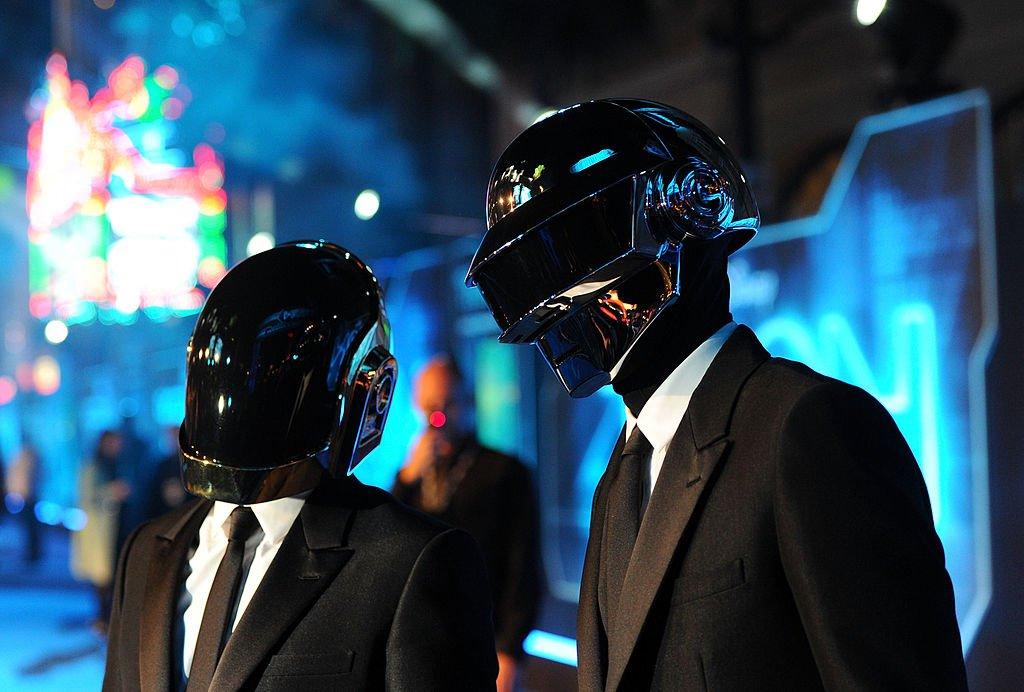
Daft Punk at the world premiere of 'TRON: Legacy' in 2010
news
'Tron: Legacy' At 10: How Daft Punk Built An Enduring Soundtrack
Released December 3, 2010, the soundtrack album pushed Daft Punk's music to new, exciting places and underscored the duo's prowess with live instrumentation
In December 2010, The Walt Disney Company took a chance—the kind only a business can take when they're the most powerful entertainment conglomerate in the world. They took Tron—a 1982 film about the world and programs living inside computers that enjoyed a dedicated, if small, cult following—and gave it a sequel. Tron: Legacy brought back original star Jeff Bridges, alongside fresh faces Garrett Hedlund and Olivia Wilde, to revisit the film's computer world of "The Grid" with the help of some much-updated digital effects.
As a film, Tron: Legacy was a mixed bag at the time, earning a modest, by Disney's standards, $400 million over its theatrical run. The movie garnered praise for its impressive visuals, while drawing criticism toward some questionable acting—and even more questionable de-aging effects on Bridges. Ten years on, many aspects of Tron: Legacy hold up quite well, especially its soundtrack, composed by none other than French electronic music duo, Daft Punk.
<style>.embed-container { position: relative; padding-bottom: 56.25%; height: 0; overflow: hidden; max-width: 100%; } .embed-container iframe, .embed-container object, .embed-container embed { position: absolute; top: 0; left: 0; width: 100%; height: 100%; }</style><div class='embed-container'><iframe src='https://www.youtube.com/embed/m4cgLL8JaVI' frameborder='0' allowfullscreen></iframe></div>
By 2010, Daft Punk were already legends in the electronic music community. The duo, composed of producers Thomas Bangalter and Guy-Manuel de Homem-Christo, had three studio albums under the belt across a career that was nearing its second decade by then, but each release showcased the meticulous genius of their craft. So, too, was their artist persona well-set, with their signature robotic helmets and gloves and their aversion to interviews combining to craft an enigmatic aura around them that only heightened their mythical status.
One only needs to look at the singles the group charted throughout the decades to understand the vast breadth of Daft Punk's skill and musical knowledge. "Da Funk," off their 1997 debut album, Homework, naturally draws from the groovy basslines and percussions of funk. The shimmering "Face To Face," off Discovery (2001), incorporates disco into the mix, and the undeniable "One More Time," from the same album, mashes sampled horns, jubilant dance music rhythms and French house music into a track that remains a foundational piece of electronic music in the 21st century.
Even with that amount of range and expertise, it was no sure thing from either side to have Daft Punk compose the film's soundtrack. In one of the few interviews the duo gave about Tron: Legacy, Bangalter told The Hollywood Reporter that director Joe Kosinski had reached out to them all the way back in 2007, with no script in hand to reference. "We were on tour at that time, and it took almost a year to decide whether we had the desire and the energy to dive into something like that," Bangalter recalled.
As well, there was initial hesitation from Disney to give the duo free rein. Another interview with the Los Angeles Times revealed that the original plan was to pair Daft Punk with a much more traditional and established film composer like Hans Zimmer. Instead, the final product saw Daft Punk forging ahead largely on their own, and the results speak for themselves.
<style>.embed-container { position: relative; padding-bottom: 56.25%; height: 0; overflow: hidden; max-width: 100%; } .embed-container iframe, .embed-container object, .embed-container embed { position: absolute; top: 0; left: 0; width: 100%; height: 100%; }</style><div class='embed-container'><iframe src='https://www.youtube.com/embed//cNK5xSs_A28' frameborder='0' allowfullscreen></iframe></div>
A conversation about the artistry within the Tron: Legacy soundtrack has to mention the original 1982 Tron soundtrack. Composed by Wendy Carlos, a pioneering electronic musician and composer, it planted the seeds for Daft Punk. While the original soundtrack is largely a traditional symphonic score, Carlos did incorporate synths where she could, like on mid-movie track, "Tron Scherzo." Even where she didn't, the physical instruments mirrored the chimes and notifications of a computer system, as in the intro to "Water, Music, and Tronaction." Daft Punk took these concepts and ran with them.
It's evident from the intro of Tron: Legacy's "Overture" how the duo innately understands the sounds they're working with and how they operate within the world of Tron. Instead of drawing from French house or club music, they pull from the sounds of an actual computer. The low thrum in the opening seconds sounds like a system booting up, and the lone horn delivering the main melodic line instantly connects this soundtrack with the original. The duo told the Los Angeles Times that the original film captivated them, and these direct links back to it prove they did their homework.
Read: 20 Years Ago, 'O Brother, Where Art Thou?' Crashed The Country Music Party
Each track Daft Punk created stands on its own without the film. The cascading synth building with a sense of urgency on "Son Of Flynn" is prime Daft Punk in its understanding of tempo and musical momentum. "Derezzed," played in the film's neon club scene—in which the duo make a blink-and-you-miss-it cameo as the DJs—is an electronic dance track through and through. "Adagio For Tron" is a moving, sorrowful ode to a fallen hero, with a minor key and just a hint of a synth beat under the orchestral rise.
Altogether, the production across the soundtrack is topnotch. Moments like the live percussion blending into the synths in "The Game Has Changed" show a great understanding of both film scoring as well as the concept of bridging technology and humanity, a central theme in the film.
<style>.embed-container { position: relative; padding-bottom: 56.25%; height: 0; overflow: hidden; max-width: 100%; } .embed-container iframe, .embed-container object, .embed-container embed { position: absolute; top: 0; left: 0; width: 100%; height: 100%; }</style><div class='embed-container'><iframe src='https://www.youtube.com/embed//fsHz2DU7b7s' frameborder='0' allowfullscreen></iframe></div>
Much of Daft Punk's approach to Tron: Legacy is rooted in a darker, more ominous sound, which is a major reason why the soundtrack and the movie both still resonate today: They're decidedly more cynical and pessimistic than the original. Tron arrived at the dawn of widespread home computing, and both the film and its soundtrack embody the optimism of what technology could do for the average person. In 2010, things were vastly different. Mass data collection, security hacks and stolen information, social media toxicity, and disinformation spread were the name of the game; it's only gotten worse over time.
Consequently, Tron: Legacy is cynical in its view and appropriately more sinister in its aesthetic, an approach Daft Punk heightened with their soundtrack. "Rinzler," the theme for one of the film's main villains, drips with menace from its abrasive percussion and moody synths. Even "Flynn Lives" and "Finale," two of the tracks at the end of the movie where the heroes emerge triumphantly, are more subdued than a typical climactic piece, with horns that fade quickly and quiet string sections taking their place.
<style>.embed-container { position: relative; padding-bottom: 56.25%; height: 0; overflow: hidden; max-width: 100%; } .embed-container iframe, .embed-container object, .embed-container embed { position: absolute; top: 0; left: 0; width: 100%; height: 100%; }</style><div class='embed-container'><iframe src='https://www.youtube.com/embed//tj_v6RvGMh4' frameborder='0' allowfullscreen></iframe></div>
2010 was a high-water mark for popular artists stepping into film music, with Daft Punk's Tron: Legacy soundtrack and Trent Reznor and Atticus Ross' The Social Network score dropping in the same year. Still, the influence has been felt periodically on film scores since. Sucker Punch (2011) leaned heavily into dance and electronica in its cover album soundtrack, and Arcade Fire provided a futuristic tilt to Her (2013). For its part, Disney clearly learned the right lesson when it came to pairing a visionary film with an equally visionary artist: On the Black Panther soundtrack album (2018), Kendrick Lamar married his music with the film's fictional world of Wakanda, an approach extremely similar to what Daft Punk created on Tron: Legacy.
Read: Daft Punk, 'Random Access Memories': For The Record
Daft Punk, too, learned some things they took to heart. The integration of more live instrumentation within their production, an understanding and homage of music that came before, and the challenge to explore new genres resulted in something truly special: the duo's 2013 album, Random Access Memories. It's a disco album that switched gears heavily to include more live instruments than Bangalter and de Homem-Christo had ever used in their own material before, and included direct tributes to electronic music legends like Giorgio Moroder. (The duo's magnum opus, Random Access Memories won the coveted Album Of The Year honor at the 56th GRAMMY Awards in 2014.) And each of these new elements can be traced to the work they started on Tron: Legacy.
It's fitting that Tron: Legacy and its soundtrack released in December. The cold winter matches the darkness of The Grid and the tired cynicism of what technology can achieve. But December is also so close to the start of a new year, to the hope of something different and to the promise to do more and to do better. On Tron: Legacy, Daft Punk reached deep into their knowledge to push their music to new, exciting places. It still endures as a testament to their craft 10 years later.
How 1995 Became A Blockbuster Year For Movie Soundtracks
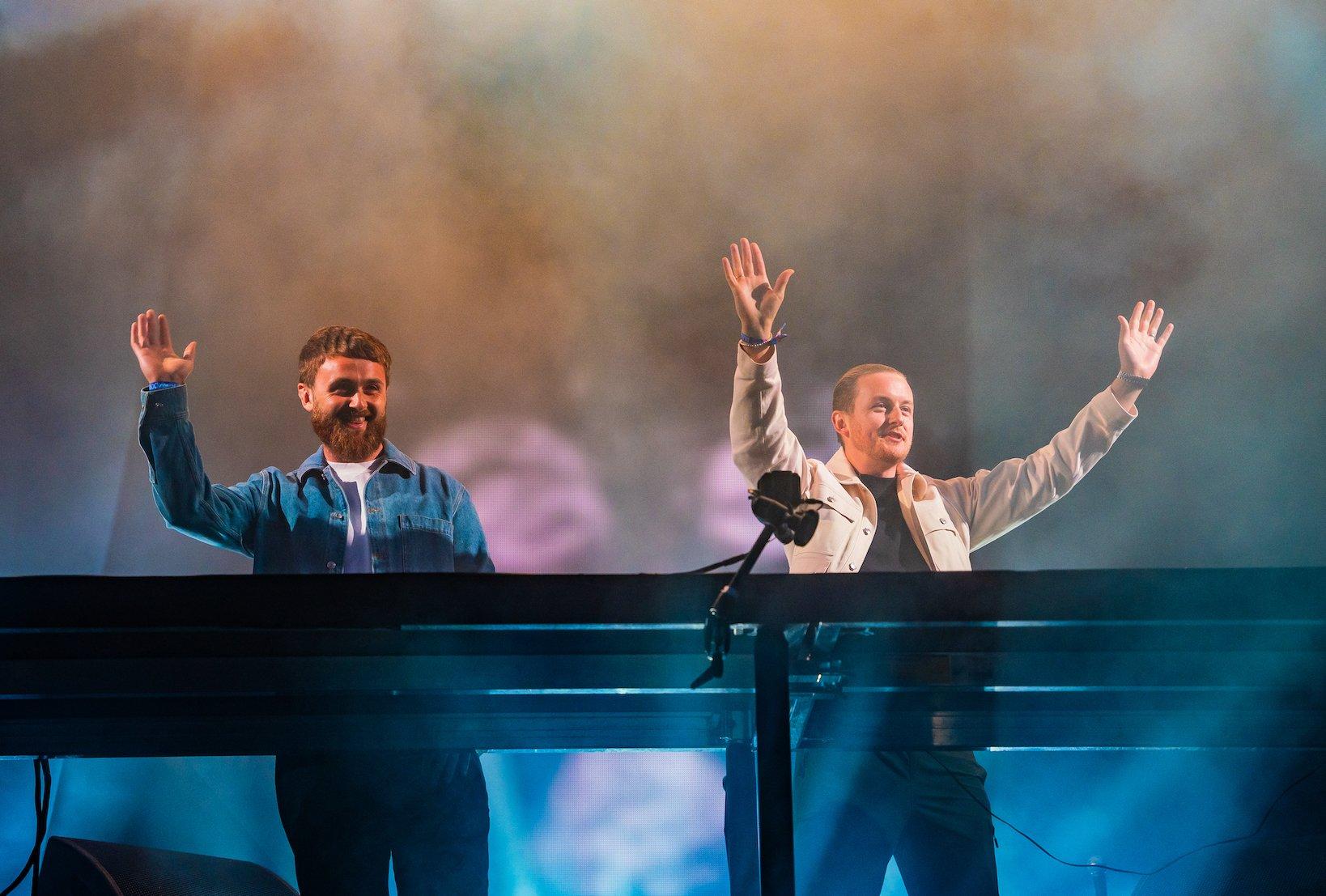
Photo: Venla Shalin/Redferns
news
10 Cant-Miss Sets At HARD Summer 2024: Disclosure, Boys Noize, INVT & More
The L.A. festival is famous for bringing an array of electronic sounds, from dance-pop and experimental techno, to classic house and rare back-to-backs — and this year's lineup features some of the biggest and buzziest acts in dance music.
When it comes to American dance music culture, few events carry the cool cache of a HARD party. Founded on New Year's Eve of 2008 by DJ and former label A&R Gary Richards, the name HARD has become synonymous with taste-making, offering fans an enviable mix of influential headliners and cutting-edge up-and-comers.
HARD parties have been a breakout platform for luminaries like Justice, Skrillex, deadmau5, and more, and the HARD Summer festival is one of the brand's most celebrated flagship events. In 2017, HARD was absorbed into the Insomniac festival family — the same company that brings fan-favorites EDC Las Vegas and Electric Forest to life — which ensures the stage production, on-site activities and other ancillary fun are sure to be supersized. How many festivals do you know that offer a Ferris wheel and a swimming pool?
Coming to Los Angeles' Hollywood Park near SoFi Stadium on Aug. 3 and 4, this year's lineup continues the tradition of blending authoritative artists, legacy DJs and unique back-to-back headliners with buzzy newcomers in a variety of genres and styles.
Whether you wanna rave out with club king Jamie xx, bang your head to bass with Zeds Dead, get tropical with Major Lazer, see what it sounds like for UK grime star Skepta to DJ, or just sing along to mid-2000s belters courtesy of dance-pop crossover queen Nelly Furtado, there's something to please every palette. Of course, in true HARD tradition, we seriously recommend exploring the undercard, because the biggest name in electronic music tomorrow is probably playing one of the HARD side stages today.
While you wrap your head around the stacked lineup, check out a quick guide to 10 must-see acts below.
Boys Noize
A legend on the decks who can play blissful disco or teeth-shattering techno with a smile, Boys Noize is a must-see on any lineup simply because he loves doing the job. He recently teamed with Skrillex on the anthem "Fine Day," and released an entire EP with alt-rap icon Rico Nasty. He's also the producer behind Lady Gaga's beloved Ariana Grande collab, "Rain On Me," and Playboi Carti's "Unlock It," but he's likely to unleash a massive set of hard techno bangers for the L.A. crowd — though you never can tell which direction he'll take you in next, so come with an open mind.
Disclosure
As the top-billed headliner for Saturday night, Disclosure should need little to no introduction to any modern dance music fan — but that doesn't mean you should sleep on their set.
Howard and Guy Lawrence emerged on the scene as seemingly an instant success. The brothers' debut album, Settle, almost single-handedly changed the landscape of popular dance in 2012, moving the taste du jour away from the big-room EDM and bass-heavy trap sound toward a UK garage revival that still carries, and helped launch Sam Smith's career in the process.
In the 12 years that followed, Disclosure has continued to push the envelope — and themselves — working with cross-genre heavyweights including Lorde, Khalid, Miguel, Kelis, Slowthai, and The Weeknd, as well as incorporating international sounds and styles into their club-driven house grooves. Earlier this year, Disclosure returned with the dance floor-ready single "She's Gone, Dance On," announcing themselves as arbiters of disco-laced funk and good-time DJs for 2024 crowds. Surely they'll be in top form come HARD Summer.
INVT
If you like your dark techno to come with a side of hip-shaking Latin rhythms, Miami-bred duo INVT is the experimental sound machine you can't possibly pass up. Luca Medici and Delbert Perez have been best friends since they were kids, and that closeness comes through in their tight experimental sets, blending booming bass with glitched-out techno synths, cumbia rhythms, dembow beats, and acidic edge.
INVT are — as the name may imply — extremely innovative, leaning into their own productions and edits to curate an approach that feels hypnotic, exciting and unique. If you're not afraid of beats that go really hard and get a little weird, this is a set that can set your wild mind ablaze.
Rezzmau5
What happens when you put two of the most unique and hard-hitting producers in electronic music together on one stage? Deadmau5 is one of the scene's leading icons, and Rezz (who released her debut album of deadmau5's Mau5trap label in 2017) shifted bass music culture with her gritty, techno-fueled, half-time sound. The two share a love of dark, stomping, left-field noise, and after years of teasing possible collaborations, those shared interests merged on the 2021 collaboration "Hypnocurrency." Two years later, they released the booming, dystopian 2023 single "Infraliminal" — not just a brilliant rework of deadmau5's 2012 track "Superliminal," but the official introduction to Rezzmau5.
Rezzmau5 haven't released anything since, and live performances from the duo have remained few and far between. But the monolithic duo just warmed up their trippy joint live show at Tomorrowland 2024, which was set in "the mythical realm of Silvyra," a world "filled with creatures, plant life, and people living in harmony." Whether or not their HARD set follows the same storyline, it's certain to shake the skulls of every dancer at Hollywood Park. Prepare your body for something deep, dark and maniacal.
Elderbrook
There aren't many electronic acts that bring the same level of frontman energy that Elderbrook boasts on stage. A multi-talented performer, the UK artist sings and plays instruments, creating a rock-show experience unlike most sets at heavily electronic festivals like HARD. He leads the crowd in heartfelt sing-alongs to hits including "Numb," "Something About You," "Inner Light" and, of course, his megahit CamelPhat collab "Cola."
Bouncing between his microphone, synthesizers and keyboards, samplers and drum pads, his one-man band performance is sure to draw a serious crowd. If you're ready for a break from the hard-edged rave noise and want to ascend to heavenly heights, Elderbrook is the man for the job.
Fisher + Chris Lake (Under Construction)
Nothing is more fun than watching two best mates go absolutely nuts on the decks. And when two stellar DJs go back-to-back, everyone wins, because they spend the whole set trying to impress each other.
Chris Lake is one of the most influential producers in tech house. Fisher is one of the most unhinged and energizing DJs one can ever witness. Together, the besties deliver an over-the-top party with an arsenal of mind-numbing drops, weirdo grooves and just-plain fun vibes that make you wanna hug your friends and dance 'til you sweat. The set is called Under Construction, but make no mistake: these two have completely mastered the blueprint.
JYOTY
If you like your sets to be playful cross-genre explorations of sounds from around the world — tied together by booty-shaking beats and booming bass lines — JYOTY is sure to check all your boxes. She knows how to lead a great party because she spent her childhood frequenting the unmatched clubs of Amsterdam. And with an ethos built around playing whatever the heck she wants, she's comfortable dropping a bit of hip-hop into some Brazilian bops, mixing it up with hard breakbeats, blistering rave synths and more.
Kerri Chandler
If you don't know your history, you're doomed to repeat it, but no one brings the house down quite like Kerri Chandler. A pioneer of the original deep and garage house movements, Chandler was a foundational DJ of the '80s scene, holding down a residency at the legendary Club Zanzibar in New Jersey and founding the MadHouse Records label. If you want to feel the soulful spirit that made electronic music what it is, Chandler's dreamy mix of feel-good melodies served over kickin' club beats are a direct line to house music's roots.
Mary Droppinz
You know how Mary Poppins had a magical bag that held everything from a hat rack to an ornate mirror, a house plant and a Tiffany lamp? Well, California DJ Mary Droppinz comes equipped with a magical USB that's positively bursting with mean beats and original edts.
This woman can blend everything from grimy bouncing bass to ethereal orchestral house, Spice Girls reworks, drum'n'bass bangers, reggae upbeats, '90s R&B remixes and chart-topping hits of the moment twisted into face-melting heaters. You can try to guess where she'll go next, but it's better to just let her take control and follow the vibe through all the devious twists and turns. The one thing you can count on? You'll leave her set dripping with sweat.
Overmono
Disclosure aren't the only brilliant UK brothers on the HARD Summer lineup. Overmono's Tom and Ed Russell hail from Wales and make some of the most inspired club records of our time.
With backgrounds exploring hard techno, drum'n'bass and rave, the brothers combined their talents in 2015 and have since created an enviable blend of soulful atmospheres and frenetic breakbeats that feels nostalgic and sentimental, but still very heavy. Overmono's 2023 album Good Lies is a great play from start to finish, and a good way to get prepped for their critically acclaimed live set. If you need a big-name co-sign, Overmono was recently featured on Fred again..'s "Stayinit" with Lil Yachty on the vocal. That's the caliber they're rockin' with — and the prestige they'll bring to HARD Summer.
Latest Music Festival News
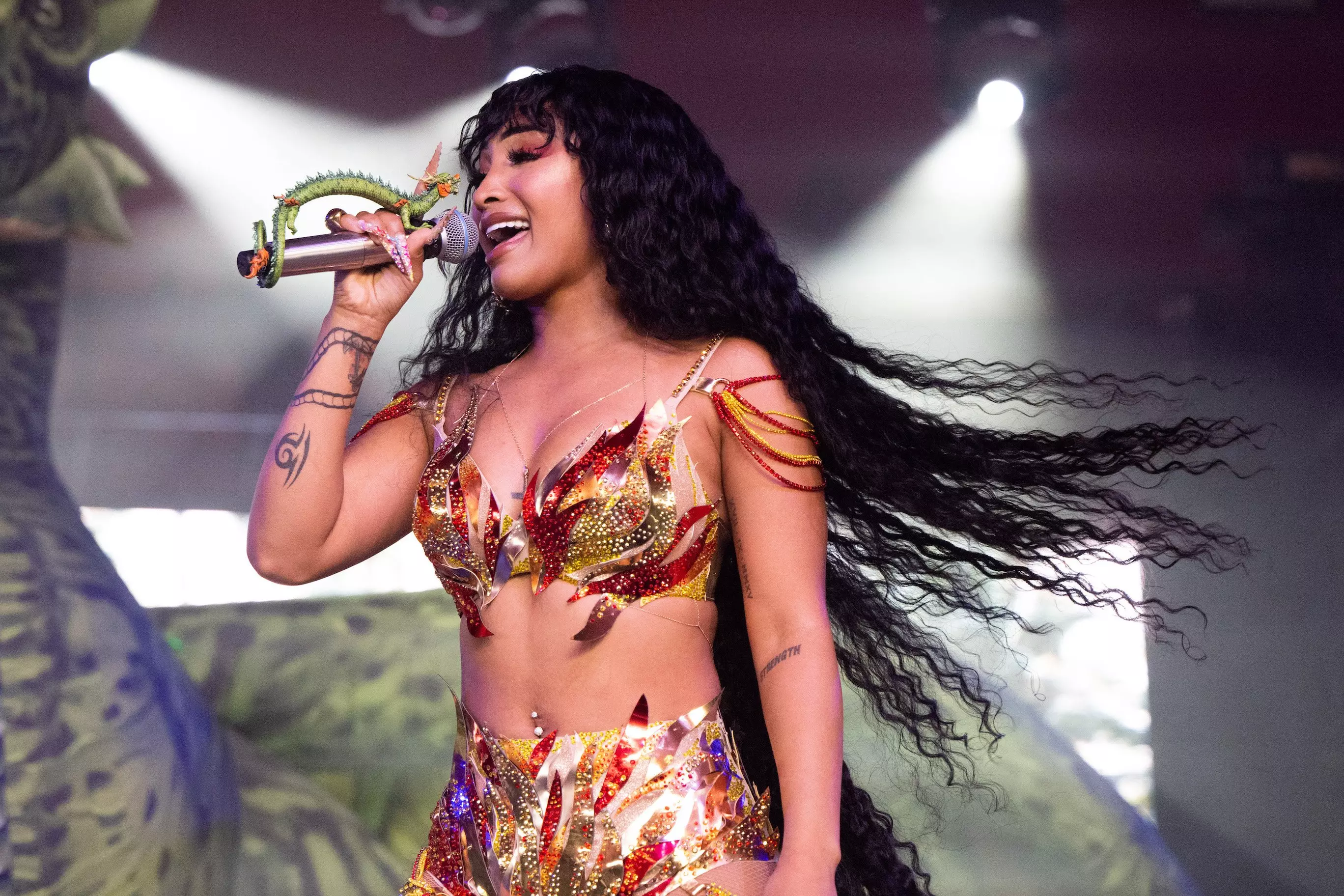
8 Can't-Miss Acts At Afro Nation Detroit 2024: Shenseea, Ayra Starr, Kizz Daniel & More
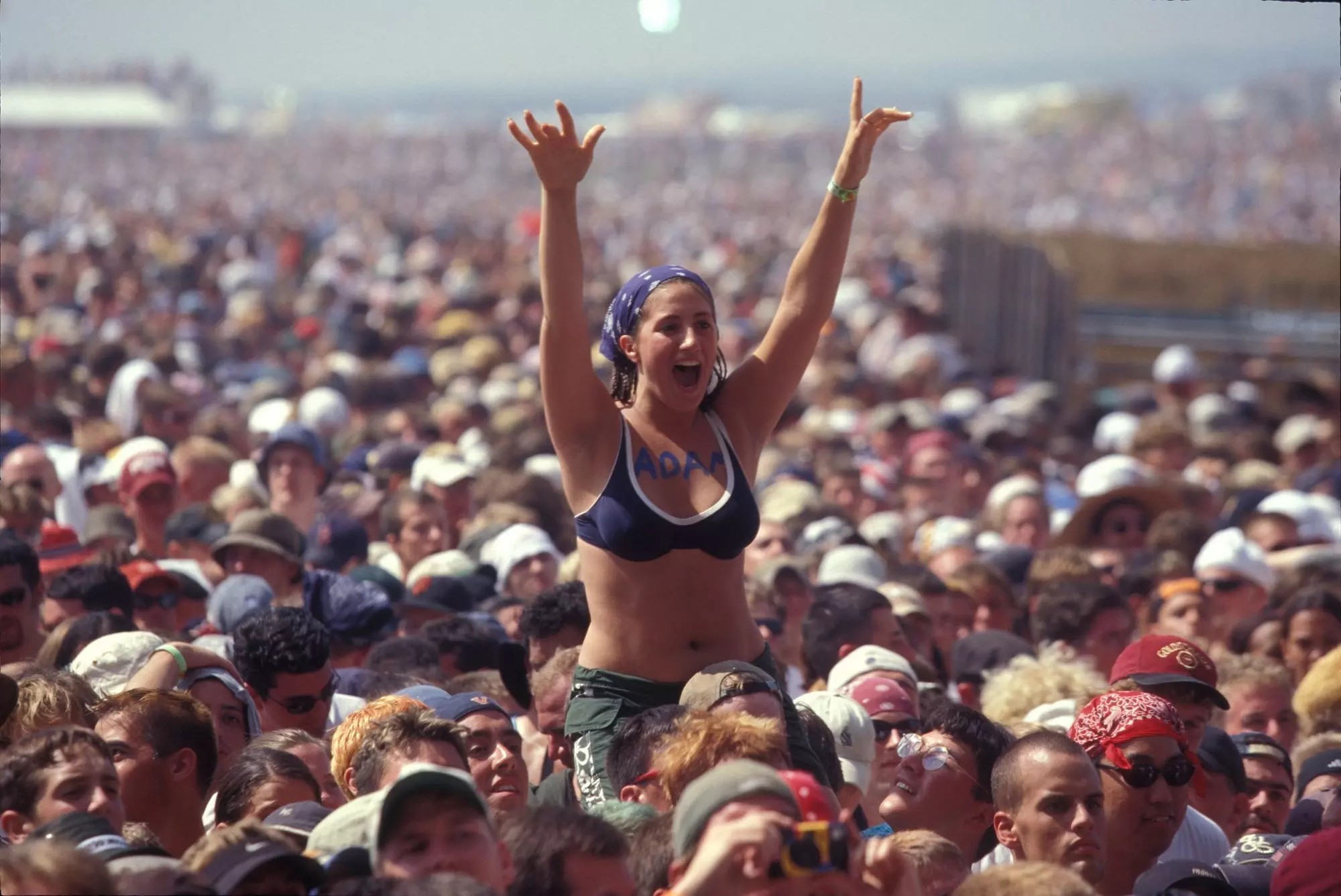
On This Day In Music: Woodstock '94 Begins In Upstate New York
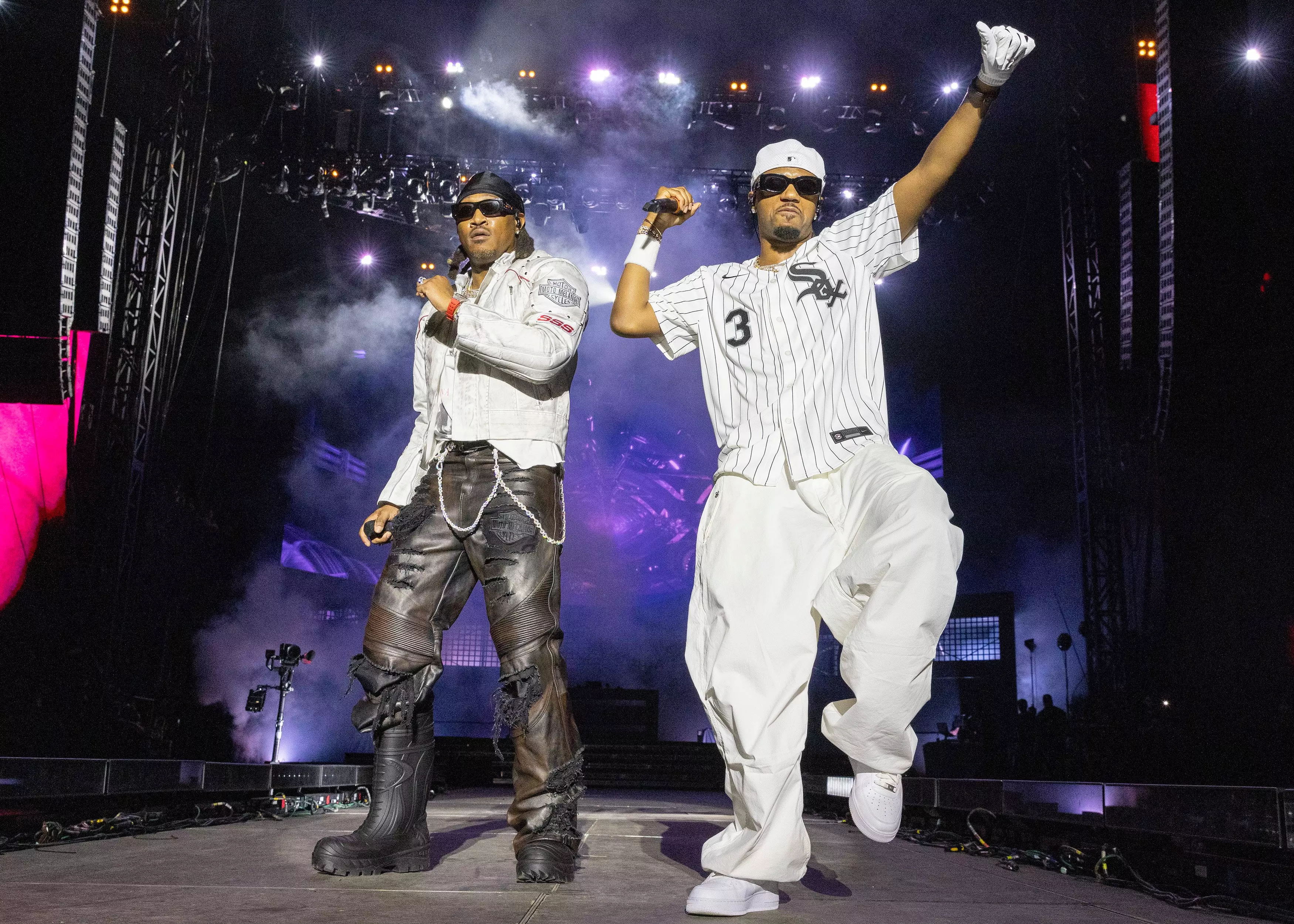
7 Stellar Sets From Lollapalooza 2024: Megan Thee Stallion, Future x Metro Boomin & More
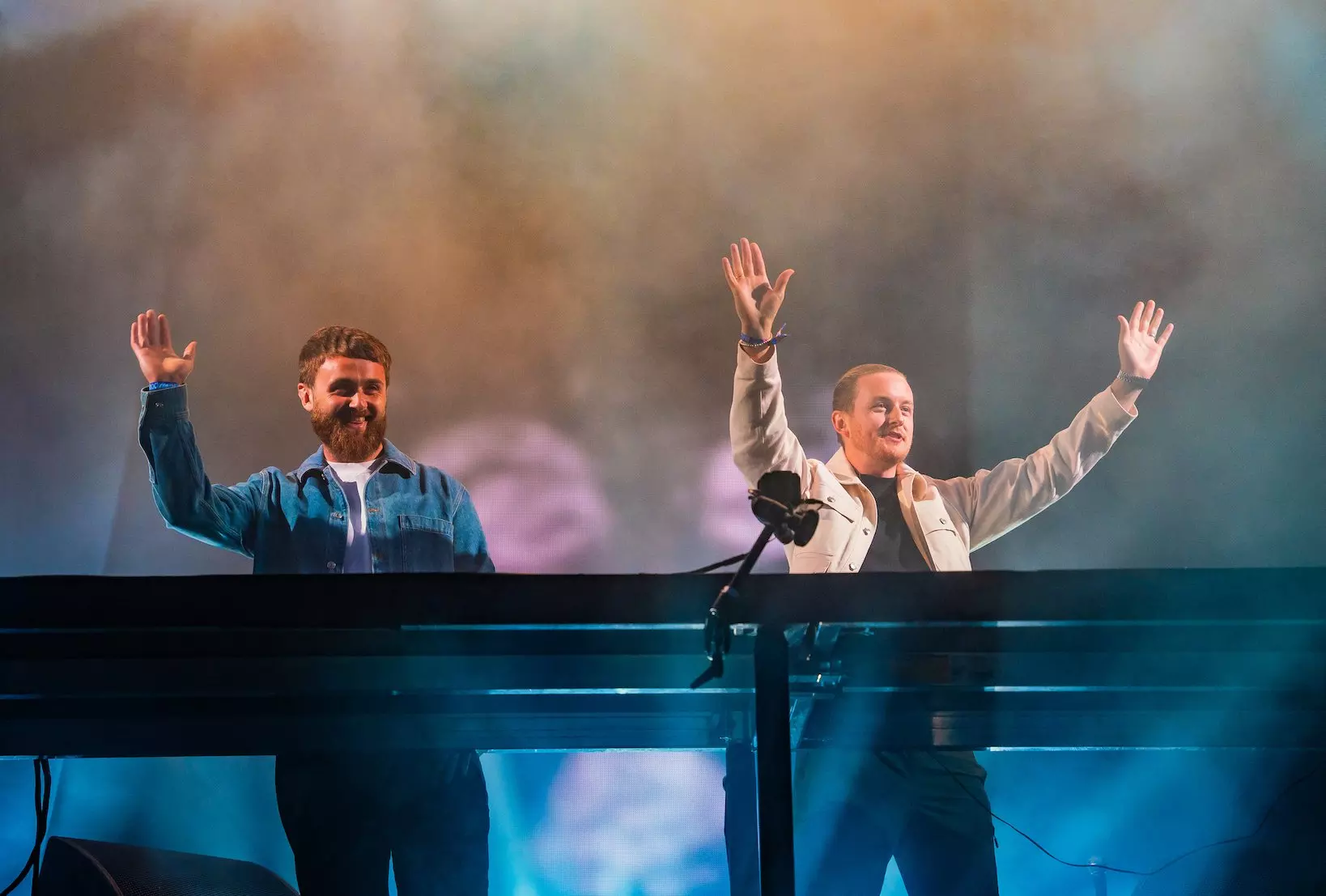
10 Cant-Miss Sets At HARD Summer 2024: Disclosure, Boys Noize, INVT & More
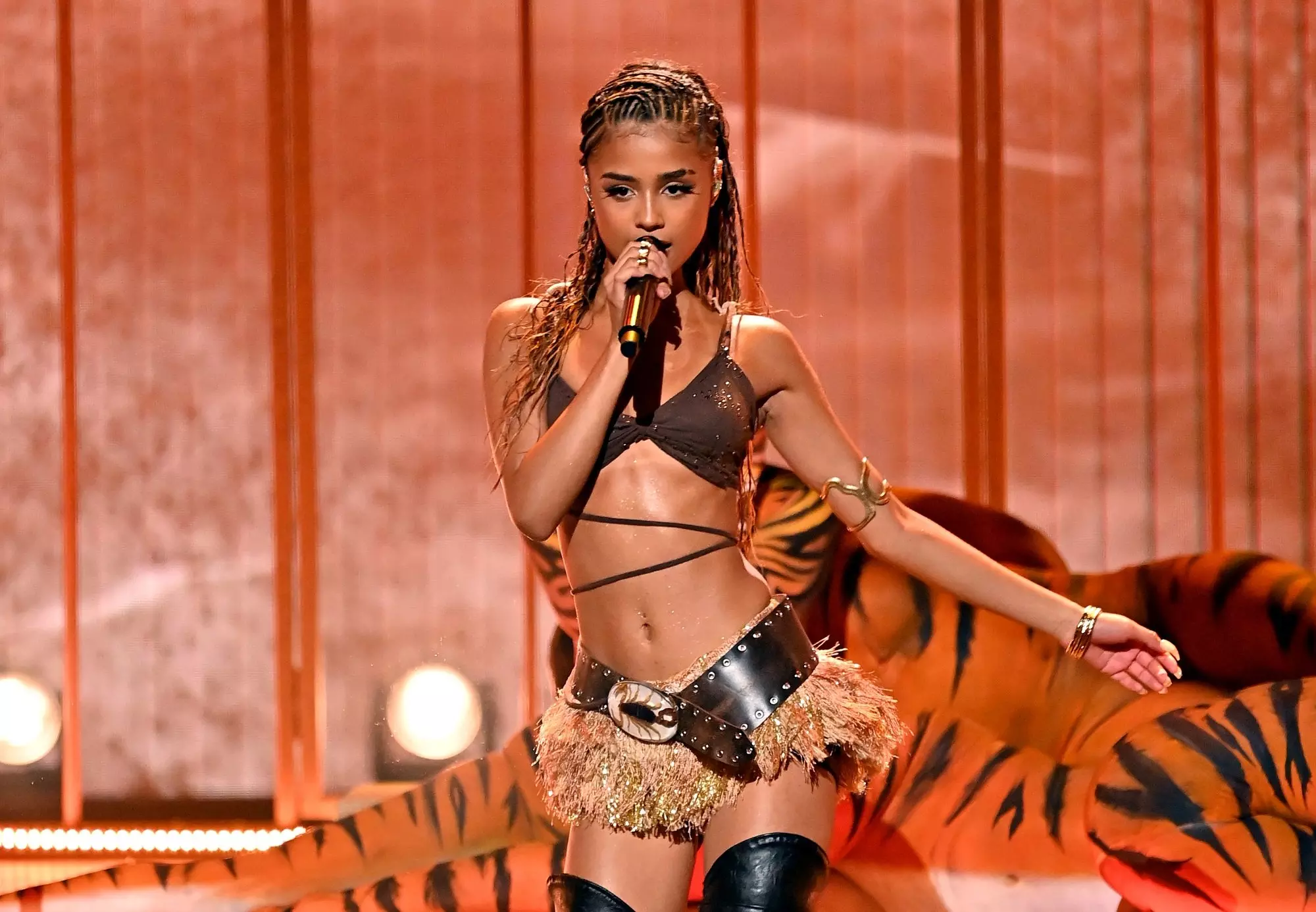
10 Must-See Acts At Lollapalooza 2024: Tyla, SiR, Stray Kids, Dominic Fike & More
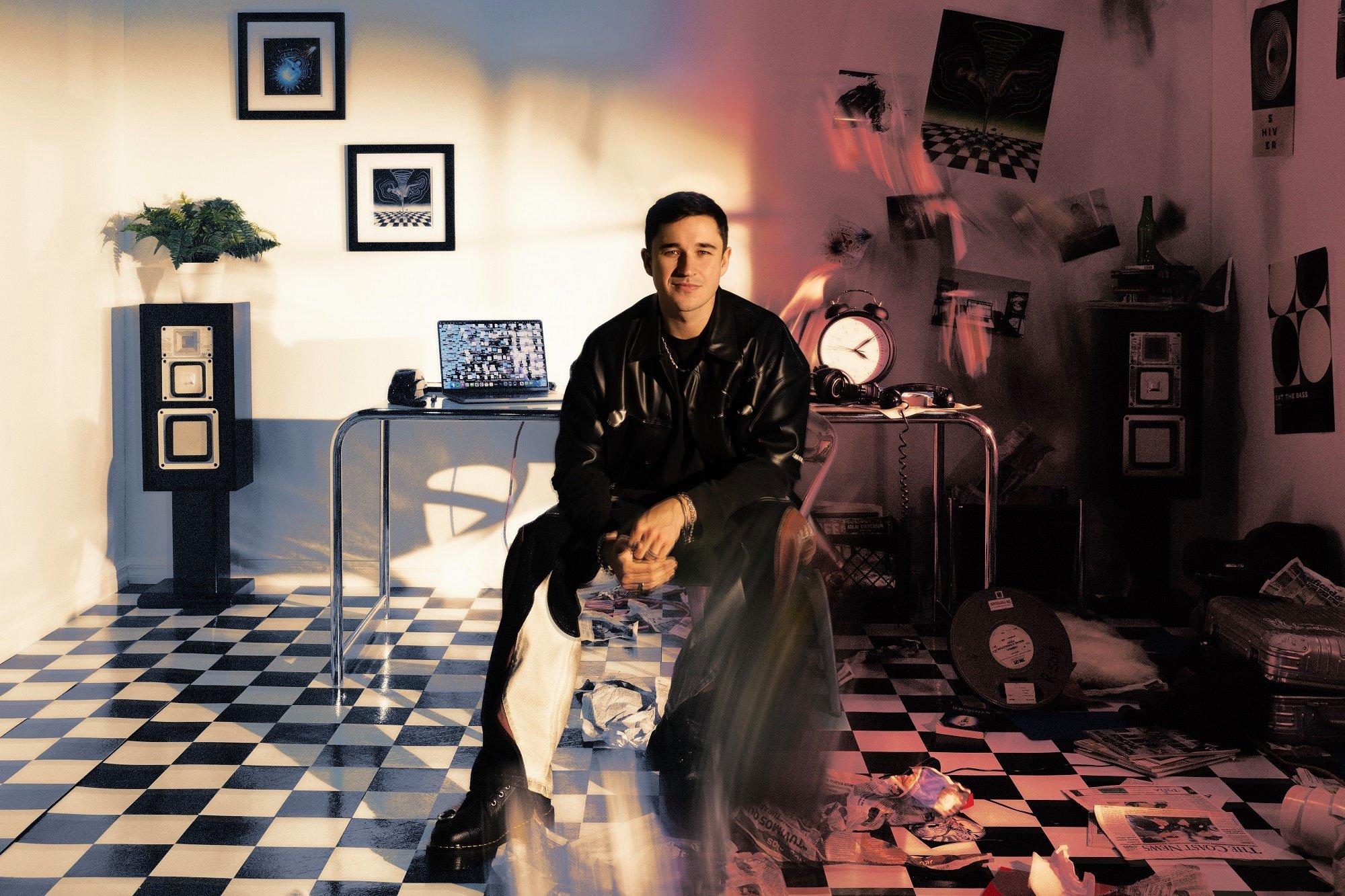
Photo: Dana Trippe
interview
Finding 'Comfort In Chaos': John Summit On The Journey To His Debut Album
"I always wanted to do an album," the DJ/producer says of 'Comfort in Chaos.' Although Summit has graced many major stages, creating his full-length debut took "over 10 years of producing and eight years of releasing music to get confident enough."
"I'm a little hungover, but I'm hanging in there," John Summit admits with a chuckle. The DJ/producer had stayed out late the night before (as DJs typically do) but for once, it wasn’t for work. Instead, he and his friends went bar- and club-hopping — "normal people stuff," Summit calls it. When asked how often he gets to do that these days, he laughs again. "Literally never. I felt like it was the first time in years."
Given the past few years, it’s understandable. Summit was still early in his career when he released his breakout hit, 2020’s "Deep End," a couple months into global lockdown. He maintained that momentum with a long string of releases including "Thin Line" with Guz, "Sun Came Up" with Sofi Tukker and "Human," the latter producing his first U.S. Dance Radio No. 1.
When live events powered back up, Summit quickly graduated to playing major venues and main stages. In the last two years, he’s DJed everywhere from Movement Detroit to Manchester, Turin to Tulum, and NYC to nearly every Ibiza superclub; in between, he launched his Experts Only record label. This year, Summit closed out EDC Las Vegas and Coachella; in June, he headlined a show at Madison Square Garden. Being a dance music superstar is a marathonic job, but a glance at his off-the-cuff social media posts suggests he’s more than up for the challenge.
Despite his hectic schedule, Summit somehow carved out time to write his debut album, Comfort in Chaos. In a way, it showcases his past, present and possible future. Recent single "EAT THE BASS" delivers the booming energy of the club tracks upon which he made his name; others, such as Billboard Top 10 hits "Where You Are" and "Shiver" with Hayla, are examples of his current evolution into lyric-focused songs, equally rich in melody and emotion. There are more surprises, still, as Summit explores sounds beyond his house and techno playground. "[This is] exactly the kind of music I've always wanted to make," he says, "but I never had an outlet or a reason to because they're not dance-floor-focused tracks."
The album’s sonic extremes also represent the duality between John Summit, the artist we see living his best life, one party at a time; and John Schuster (his given name), who’s introspective, who isn’t always confident, and who’s experienced "the lows" of returning from a show to an empty hotel room. "Now I'm comfortable where I am in life and I feel like I can tap into that [emotion]," he says. "It's cool to be able to show that side of me."
Before Comfort in Chaos’ release on July 12 via Darkroom/Experts Only, Summit tells GRAMMY.com how he got to this milestone.
This interview has been edited for clarity.
How long has the idea of a debut album been in your mind?
It's been in my mind since the day I started making music. I really got into songwriting four years ago. I did "Summertime Chi" with Lee Foss, which is an original written vocal, and then I did "What A Life" with Stevie Appleton a year later. That was received really well by my fans and I'm like, Oh, I don't have to just use samples. I can actually write completely original music.
Ever since then, the music has gone crazy. The first single off the album that I made was "Where You Are" with Hayla, which came out over a year ago, and that's when I feel like the ball really started rolling. In November, I took a month off and wrote pretty much the whole album in London and it really all came together then.
An entire month off? That seems rare.
Yeah, it's insane for me. I haven't taken a month off since I started touring, but I knew I had to do that, especially to make music that's not just meant for the dance floor. I produce on the go. I produce on planes and everything, but when you're always playing shows, you always make music just for the shows.
When you can actually take time off, I feel like you can make music that's actually meant for those rainy London days meant for just chilling with friends and stuff like that. So it was cool to make an actual body of work instead of just festival music.
What did that month look like for you in terms of the creative process?
I got this studio house for a month; this crazy house that has a couple of studios in it. My bedroom's at the top and I would take a slide down to my studio literally from the bedroom. I had a session every day for 30 days straight, and I just invited all the singers and producers I worked with. Sub Focus for example, he lived in London and then Hayla, Julie Church, Paige Cavell.
Pretty much everyone I work with is UK-based, so it was kind of a no-brainer to go to London for that. It was a lot of fun because we just make music all day, then drink at night and party. That's when you can share all your ideas with other people, at night when you're having drinks, wanting to call it banter. It was great.
To speak more about the variety of music that you make: You initially broke out with very club-forward tracks like "Deep End." But as you said, you've since honed a more melodic, songwriting-based sound. Was it a conscious evolution or did it just gradually happen over time?
I feel like it was just an evolution as an artist. House music is a very loop-based sound where it's, what, a four-by-four kick drum and an eight-bar loop… I kind of graduated from that to doing full-written songs [like] "Where You Are." But it took a lot of time.
I was always writing songs during that process, but they weren't good. Writing a full song, it's like going from a short film to a movie. I always wanted to do an album, but it really did take me over 10 years of producing and eight years of releasing music to get confident enough to be able to do this.
How do you tap into the emotion of those songs, especially given the image that you portray online?
I guess that's the whole purpose of the album: That I've been portraying this John Summit image my whole career, but in reality I'm John Schuster. The John Summit image is obviously an entertaining party guy that loves to have a good time; in reality, outside of the club, I'm just sitting at home making music, and I want to show the more introspective side of me.
I've been neglecting my emotions the past few years, especially after quitting the accounting job five years ago. Then I was just in this full party mindset, but now I'm comfortable where I am in life and I feel like I can tap into that. So it's cool to be able to show that side of me.
Who is that more introspective John Schuster?
Someone that, I guess, shows that I'm not really a 100 percent confident all the time. That I've experienced very high highs, but very low lows as well. I mean, John Summit has the biggest highs on stage, but then I go back to my hotel room and I'm by myself and experiencing the lows and being by myself all the time. So I guess showing that kind of emotional side is fun for my music at least.
Absolutely. I imagine it’s difficult going not from zero to a hundred, but a hundred to zero.
Exactly. That's the hard part. Zero to a hundred is the fun part.
If debut albums are like an artist's mission statement, what do you want 'Comfort in Chaos' to say?
I think kind of what I was just touching on, the duality of John Schuster and John Summit. This is the first time I've fully shown my other half. I've been showing it through singles: "Where You Are," "Go Back," "Shiver" and stuff. But to do it in a full album where — especially the intro track where there's really no vocals on it, and it starts experimental and a bit progressive, and then the drop is really just a kick in bass. It's tension-release, which I love in music, but it just shows, not to be too pun intended, the comfort in the chaos that is my life right now.
What brings you comfort in chaos?
That's a good question. Honestly, it's more so me trying to find my comfort in chaos. Because the thing is that if I'm on stage every night, I’ve got to be comfortable up there. The more confident I am, the better show that I do. And so I think I'm finding it now.
It's kind of the whole fake it till you make it. At first I had to get hammered every single night just to get on stage, and now I can get up there without doing that, which is a big stepping stone for me.
So it seems like it's more about the journey than the destination.
Exactly, exactly. It's basically trying to find my comfort in chaos. And I think I've gotten there, so now is the perfect time for the album. I couldn't release that while I'm still not comfortable.
Given how significant Kaskade and deadmau5’s "I Remember" is to your electronic music journey, it must feel very special to have Kaskade on the album.
Yeah, it was kind of a no-brainer. I was able to remix "I Remember" last year, which is huge for me. The track that literally got me into electronic music. Kascade is also from Chicago, and he's the one that introduced me to Hayla, too.
We've been trying to make something work and we just didn't know what direction to go with it. It took a while, but we both love melodic and emotional music and we both love heavy techno, and so we made it work in one song, which is great because the track starts very comforting and it gets very chaotic, so it's very on-brand with the album.
What have you learned from Kaskade, whether directly or from afar?
I've learned patience, and that everything's going to be okay. I'm a very neurotic person; I am very anxious and worry about every little detail, and he's the coolest, calmest guy I've ever met. I think it has to do with just his experience in the scene. Everything I'm experiencing is something he's experienced at some point in his DJ career, and even before Coachella, I was like, "Man, I don't know if I can do this" And he was like, "Bro, you got this. It's easy. Play your music." And I'm like, "Oh s—, you're right." It’s as simple as that. Yeah, he's been a good mentor.
To borrow a word that you've used in another interview, being "unhinged" on social media has played a significant role in building your fan base over the years. How has your relationship with social media changed in terms of the content you share and fan interactions?
I'm still definitely unhinged on social media. That hasn't changed, but it has made me not afraid to show all facets of myself. I've just started showing the more emotional and deeper side of myself, but it is cool that I can say no matter who I am, I have good days and bad days. The fans can connect and resonate with that, which is cool because it was annoying growing up and following artists who are perfect on social media all the time. So I try to be as transparent as possible.
Given the positive response to your collaboration with Subfocus, do you feel more encouraged to get eclectic in your future music?
The Subfocus one was still pretty dance-floor-focused, and I still haven't released anything that's not dance-floor-focused. I mean, obviously in the album there is with the intro, with "Calm Down," with "Undo," with ["Palm of My Hands"] and ["Stay With Me"], so I'm waiting to see how fans like that. But at the end of the day, though, I’m at the point in my career where I don't have to put out things just to please dance floors. I feel like I've kind of made it where now I can experiment more and take risks. Now is when my career is starting to actually get fun.
Latest News & Exclusive Videos

Watch Tommy Brain Share His Akai MPC
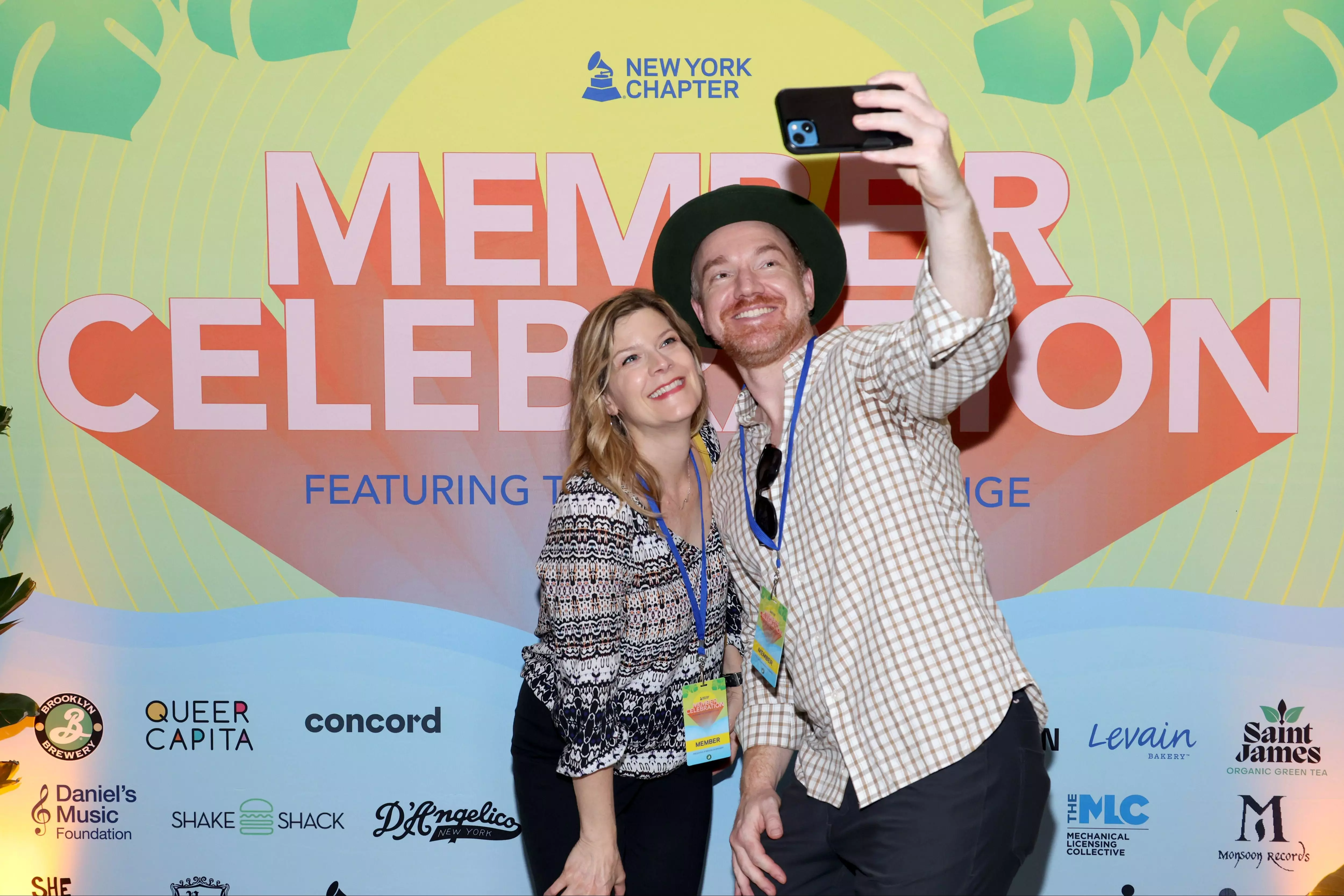
At Their Member Celebration, The Recording Academy's New York Chapter Sees A Joyous Meeting Of The Musical Minds
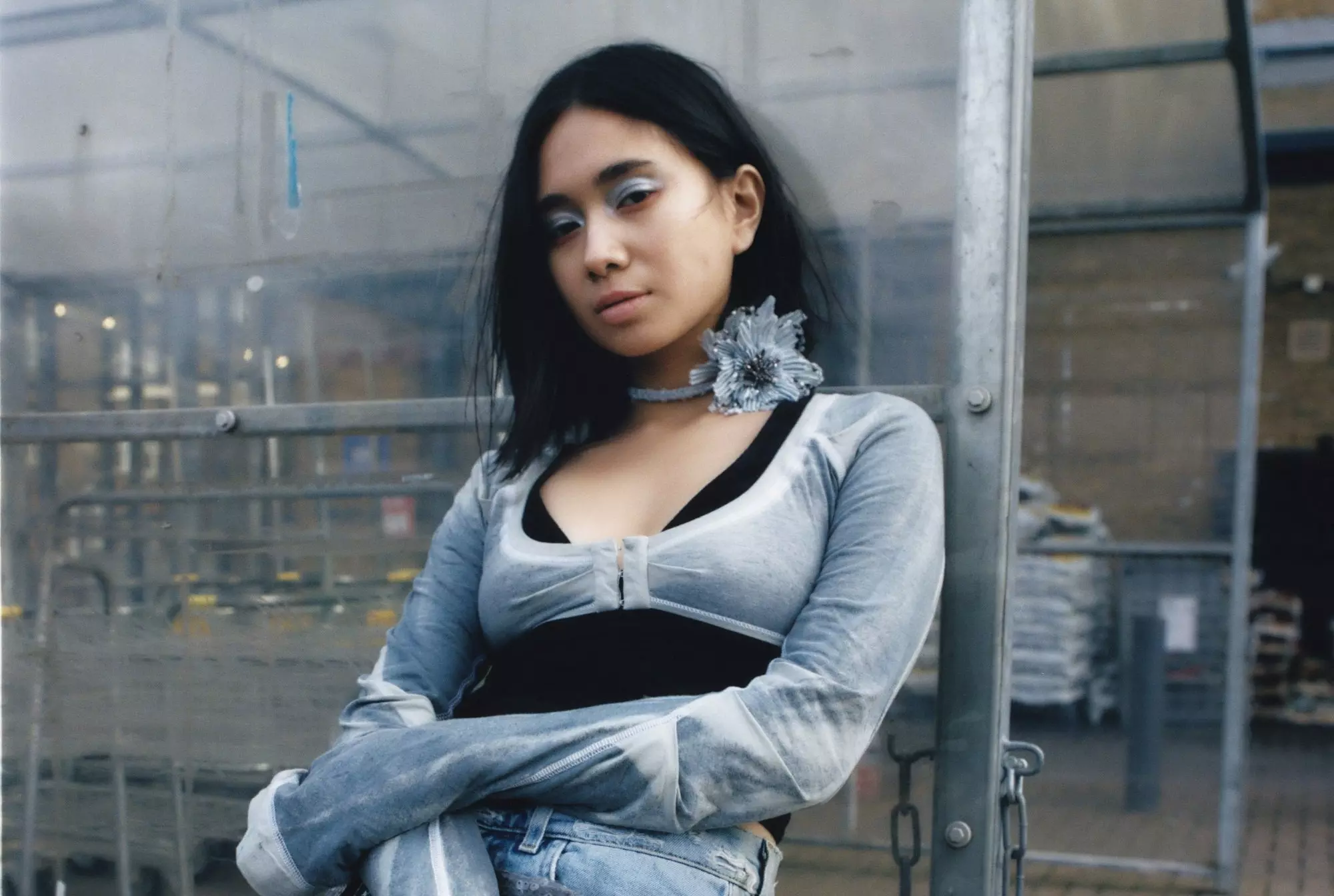
On Her New Album 'Buzz,' NIKI Embraces Radical Acceptance & The Art Of Letting Go

8 Can't-Miss Acts At Afro Nation Detroit 2024: Shenseea, Ayra Starr, Kizz Daniel & More

NIKI Covers Goo Goo Dolls "Iris"
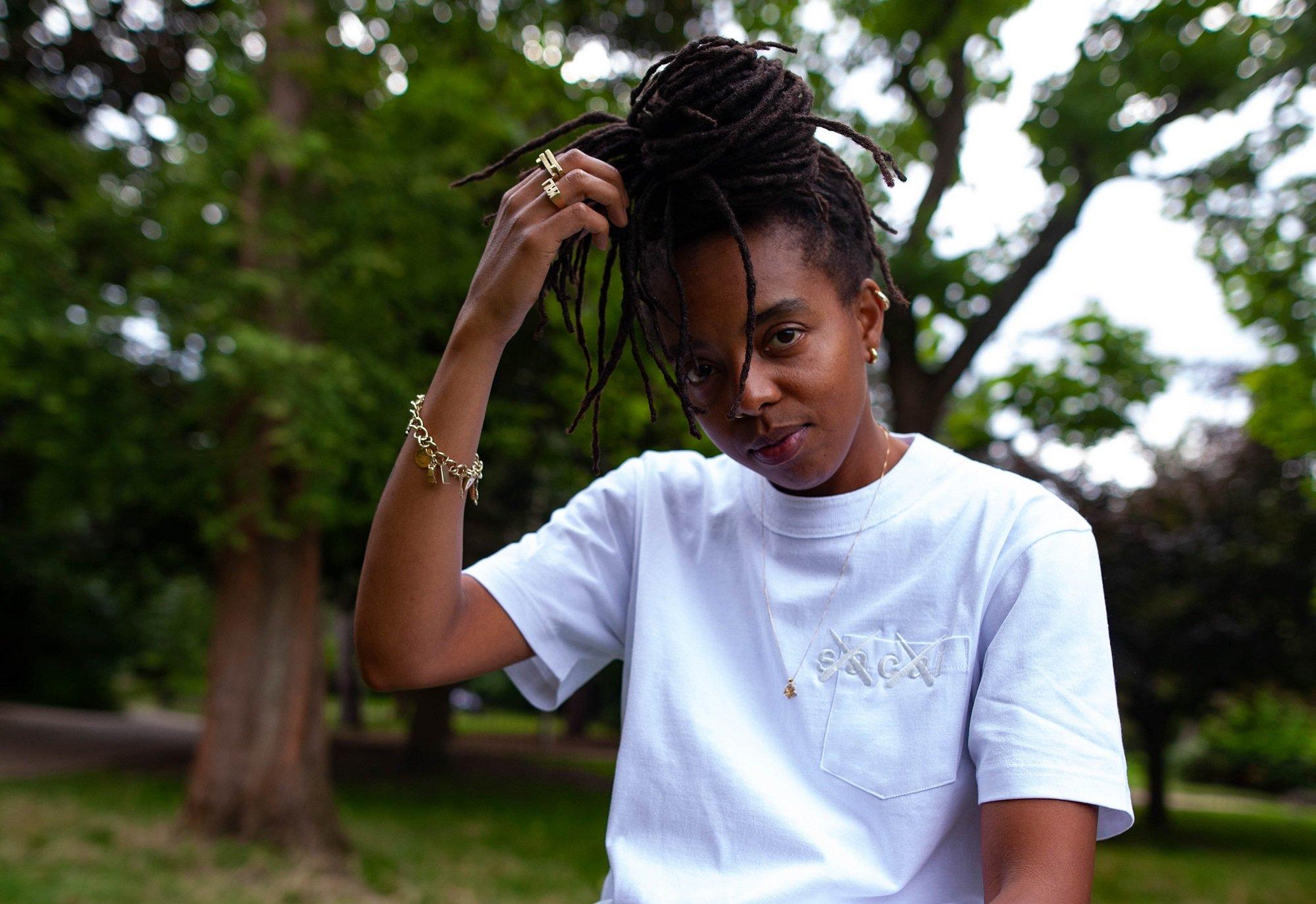
Photo courtesy of Prism Artists
list
Meet The Artists Bringing Back UK Jungle: Nia Archives, SHERELLE & More
First developed in the 1990s, a new generation of UK musicians — particularly queer individuals and women of color — are reviving jungle music. From Tim Reaper to PinkPantheress, envelop yourself in the experimental sounds of the genre.
In the early 1990s, a bombastic new type of music was emerging in the underground Black British scene of London. Jungle was a frantic mixture of breakbeats and reggae featuring fast beats that splintered into myriad directions, interspersed with vocal samples.
Thanks to pirate radio stations, jungle saturated the streets of London’s predominantly Black, working-class neighborhoods. Jungle was a sound of escapism, celebration, community, crafted by the children of immigrants of post-war Britain.
Junglist historian Julia Toppin notes in her essay "Tech, Language and Riddim: From Jungle to UK Drill" that jungle "snatched bites from young Black Britain’s sonic palette of genres: reggae, hip-hop, pop, house, soul, RnB, groove, punk, jazz, folk, and classical," with artists like Goldie, Shy FX, A Guy Called Gerald, General Levy leading the scene. By the latter part of the decade, jungle offshoots like drum and bass gained prominence, causing the jungle scene to gradually fade into the background.
Today, a new generation of UK musicians are waking up the scene — a revival spearheaded by queer individuals and women of color. As contemporary junglist Nia Archives told GRAMMY.com, jungle is "anything over a breakbeat" — it simply refuses to conform: "The breaks have so much room to go in whatever direction you want. You can go really heavy, or you can go really light and atmospheric," she said.
It’s a flexibility that she takes full advantage of across her releases. Nia Archives layers beats with everything from pensive, thoughtful lyrics and RnB melodies ("Cards on the Table", "So Tell Me"), to rave abandon ("Baianá", "Forbidden Feelingz", "Unfinished Business")
Nia Archives is taking her debut album, Silence is Loud on the road, stopping at summer festivals including Chicago’s Lollapalooza before touring the U.S. in the fall. She is one of many contemporary jungle artists boldly experimenting with unrestrained beats, earth-shaking basslines and intricate percussive patterns to breathe new life into the pulsating rave scene.
Here are seven other artists who are bringing jungle back.
SHERELLE
Former Mixmag photographer SHERELLE gained widespread attention after a 2019 Boiler Room viral set, followed by the release of "JUNGLE TEKNAH" in 2021, which layers piano house chords onto jungle beats. Her latest single, "Henry’s Revenge," features ethereal synths over dramatic bass drops.
Fresh from a completely sold-out international tour, SHERELLE will play a New York Boiler Room set on July 14, alongside Afrobeats star Amaarae and UK rapper Giggs.
Sully
One of the slickest in the game, Sully is a pioneer of today’s revival and has been on the scene since 2005. His beats are methodical, with tight percussion flawlessly mixed into hours of ecstatic jungle harmony. On 2024 single "Nights", he teams up with jazz singer Sâlo to create a dreamy and contemplative dancefloor meditation.
He continues to inject energy into the club, with massive sets featuring the likes of grime MC Flowdan and B2B’s with fellow junglist Tim Reaper, and is playing several UK festival slots over summer.
GROVE
GROVE harnesses jungle’s unmatched energy to voice political despair. "The stinking rich families, you know how they anger me," they spat on last year’s single "Stinkin Rich," where trippy beats erupt into a heavily distorted chorus.
Their 2022 breakout hit, "Feed My Desire," is sensual, with hushed whispers and soft verses underscored by blaring basslines, demonstrating GROVE's mastery of mood — ranging from rage to seduction.
PinkPantheress
PinkPantheress didn’t come up through a club or rave scene, by anonymously uploading songs to TikTok, which she made in her bedroom during the COVID-19 pandemic. Her sped-up vocals and luscious hooks nodded to the heyday of 2000s UK Garage (UKG) (a jungle offshoot), quickly drumming up a viral following online.
Last year, the 23-year-old broke into the U.S. thanks to the massive UKG track "Boys A Liar pt 2" featuring Ice Spice, which now has over 200 million views on YouTube. A lover of throwback genres and a fan of jungle veterans like Shy FX, PinkPanthress combines breakbeats with pop melodies and emo guitar riffs, a delicious mix that’s made her one of Gen-Z’s fastest-rising pop stars.
Tim Reaper
Tim Reaper is a London native who has pushed the jungle revival for over a decade. His music includes reggae-influenced ragga samples (one of jungle's key influences), chill synths, and can go both hard and soft.
In 2020, Tim Reaper launched club night Future Retro to showcase London’s budding scene. However, the pandemic lockdown led the event to morph into a new-skool jungle record label that highlights some of the genre's hottest artists, including Sully, Mantra, and Decibella.
Shy One
London-based DJ Shy One has been making music since she was a teenager, coming up through the ranks as a selector on legendary Hackney-based online radio NTS Radio.
Her music is shaped by grime, soul, house and jungle, and she’s taking her versatile sets to a handful of European festivals this summer. Her latest single, "Gyallis Spiral," combines rubbery bass lines and scattered synths, giving it a uniquely hyper-futuristic, spacey feel.
LCY
LCY is an artist and owner of the experimental label S7NS7N whose music is, by design, indescribable. Their tracks are leftfield and surreal; the mere act of listening is an out-of-body experience.
Their 2023 EP He Hymns is a celestial exploration of club music hinged on breakbeats, heavy bass, disorientating drops and haunting vocals. You’re not sure what’s going on, but jungle is one of the many genres that form a kaleidoscope of their mind-bending sounds.
Latest News & Exclusive Videos

Watch Tommy Brain Share His Akai MPC

At Their Member Celebration, The Recording Academy's New York Chapter Sees A Joyous Meeting Of The Musical Minds

On Her New Album 'Buzz,' NIKI Embraces Radical Acceptance & The Art Of Letting Go

8 Can't-Miss Acts At Afro Nation Detroit 2024: Shenseea, Ayra Starr, Kizz Daniel & More

NIKI Covers Goo Goo Dolls "Iris"
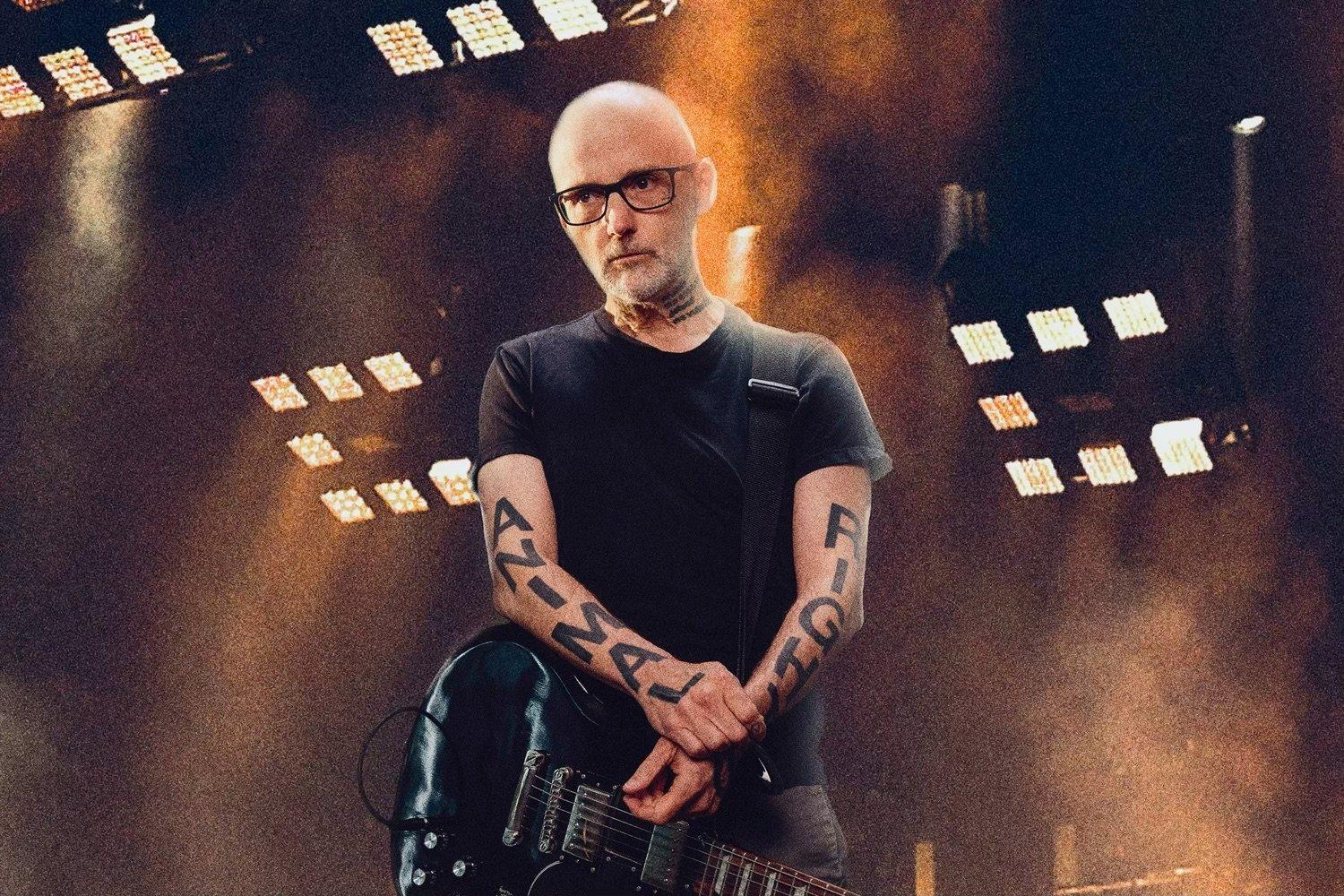
Photo: Mike Formanski
interview
"Let Yourself Be Idiosyncratic": Moby Talks New Album 'Always Centered At Night' & 25 Years Of 'Play'
"We're not writing for a pop audience, we don't need to dumb it down," Moby says of creating his new record. In an interview, the multiple-GRAMMY nominee reflects on his latest album and how it contrasts with his legendary release from 1999.
Moby’s past and present are converging in a serendipitous way. The multiple-GRAMMY nominee is celebrating the 25th anniversary of his seminal work, Play, the best-selling electronic dance music album of all time, and the release of his latest album, always centered at night.
Where Play was a solitary creation experience for Moby, always centered at night is wholly collaborative. Recognizable names on the album are Lady Blackbird on the blues-drenched "dark days" and serpentwithfeet on the emotive "on air." But always centered at night’s features are mainly lesser-known artists, such as the late Benjamin Zephaniah on the liquid jungle sounds of "where is your pride?" and Choklate on the slow grooves of "sweet moon."
Moby’s music proves to have staying power: His early ‘90s dance hits "Go" and "Next is the E" still rip up dancefloors; the songs on Play are met with instant emotional reactions from millennials who heard them growing up. Moby is even experiencing a resurgence of sorts with Gen Z. In 2023, Australian drum ‘n’ bass DJ/producer Luude and UK vocalist Issey Cross reimagined Moby’s classic "Porcelain" into "Oh My." Earlier this year, Moby released "You and Me" with Italian DJ/producer Anfisa Letyago.
Music is just one of Moby’s many creative ventures. He wrote and directed Punk Rock Vegan Movie as well as writing and starring in his homemade documentary, Moby Doc. The two films are produced by his production company, Little Walnut, which also makes music videos, shorts and the podcast "Moby Pod." Moby and co-host Lindsay Hicks have an eclectic array of guests, from actor Joe Manganiello to Ed Begley, Jr., Steve-O and Hunter Biden. The podcast interviews have led to "some of the most meaningful interpersonal experiences," Moby tells GRAMMY.com.
A upcoming episode of "Moby Pod" dedicated to Play was taped live over two evenings at Los Angeles’ Masonic Lodge at Hollywood Forever Cemetery. The episode focuses on Moby recounting his singular experiences around the unexpected success of that album — particularly considering the abject failure of his previous album, Animal Rights. The narrative was broken up by acoustic performances of songs from Play, as well as material from Always Centered at Night (which arrives June 14) with special guest Lady Blackbird. Prior to the taping, Moby spoke to GRAMMY.com about both albums.
'Always centered at night' started as a label imprint then became the title of your latest album. How did that happen?
I realized pretty quickly that I just wanted to make music and not necessarily worry about being a label boss. Why make more busy work for myself?
The first few songs were this pandemic process of going to SoundCloud, Spotify, YouTube and asking people for recommendations to find voices that I wasn’t familiar with, and then figuring out how to get in touch with them. The vast majority of the time, they would take the music I sent them and write something phenomenal.
That's the most interesting part of working with singers you've never met: You don't know what you're going to get. My only guidance was: Let yourself be creative, let yourself be idiosyncratic, let the lyrics be poetic. We're not writing for a pop audience, we don't need to dumb it down. Although, apparently Lady Blackbird is one of Taylor Swift's favorite singers.
Guiding the collaborators away from pop music is an unusual directive, although perhaps not for you?
What is both sad and interesting is pop has come to dominate the musical landscape to such an extent that it seems a lot of musicians don't know they're allowed to do anything else. Some younger people have grown up with nothing but pop music. Danaé Wellington, who sings "Wild Flame," her first pass of lyrics were pop. I went back to her and said, "Please be yourself, be poetic." And she said, "Well, that’s interesting because I’m the poet laureate of Manchester." So getting her to disregard pop lyrics and write something much more personal and idiosyncratic was actually easy and really special.
You certainly weren’t going in the pop direction when making 'Play,' but it ended up being an extremely popular album. Did you have a feeling it was going to blow up the way it did?
I have a funny story. I had a date in January 1999 in New York. We went out drinking and I had just gotten back the mastered version of Play. We're back at my apartment, and before our date became "grown up," we listened to the record from start to finish. She actually liked it. And I thought, Huh, that's interesting. I didn't think anyone was going to like this record.
You didn’t feel anything different during the making of 'Play?'
I knew to the core of my being that Play was going to be a complete, abject failure. There was no doubt in my mind whatsoever. It was going to be my last record and it was going to fail. That was the time of people going into studios and spending half a million dollars. It was Backstreet Boys and Limp Bizkit and NSYNC; big major label records that were flawlessly produced. Play was made literally in my bedroom.
I slept under the stairs like Harry Potter in my loft on Mott Street. I had one bedroom and that's where I made the record on the cheapest of cheap equipment held up literally on milk crates. Two of the songs were recorded to cassette, that's how cheap the record was. It was this weird record made by a has-been, a footnote from the early rave days. There was no world where I thought it was going to be even slightly successful. Daniel Miller from Mute said — and I remember this very clearly — "I think this record might sell over 50,000 copies." And I said, "That’s kind of you to say but let's admit that this is going to be a failure. Thank you for releasing my last record."
Was your approach in making 'Play' different from other albums?
The record I had made before Play, Animal Rights, was this weird, noisy metal punk industrial record that almost everybody hated. I remember this moment so vividly: I was playing Glastonbury in 1998 and it was one of those miserable Glastonbury years. When it's good, it's paradise; it's really special. But the first time I played, it was disgusting, truly. A foot and a half of mud everywhere, incessant rain and cold. I was telling my manager that I wanted to make another punk rock metal record. And he said the most gentle thing, "I know you enjoy making punk rock and metal. People really enjoy when you make electronic music."
The way he said it, he wasn't saying, "You would help your career by making electronic music." He simply said, "People enjoy it." If I had been my manager, I would have said, "You're a f—ing idiot. Everyone hated that record. What sort of mental illness and masochism is compelling you to do it again?" Like Freud said, the definition of mental illness is doing the same thing and expecting different results. But his response was very emotional and gentle and sweet, and that got through to me. I had this moment where I realized, I can make music that potentially people will enjoy that will make them happy. Why not pursue that?
That was what made me not spend my time in ‘98 making an album inspired by Sepultura and Pantera and instead make something more melodic and electronic.
After years of swearing off touring, what’s making you hit stages this summer?
I love playing live music. If you asked me to come over and play Neil Young songs in your backyard, I would say yes happily, in a second. But going on tour, the hotels and airports and everything, I really dislike it.
My manager tricked me. He found strategically the only way to get me to go on tour was to give the money to animal rights charities. My philanthropic Achilles heel. The only thing that would get me to go on tour. It's a brief tour of Europe, pretty big venues, which is interesting for an old guy, but when the tour ends, I will have less money than when the tour begins.
Your DJ sets are great fun. Would you consider doing DJ dates locally?
Every now and then I’ll do something. But there’s two problems. As I've become very old and very sober, I go to sleep at 9 p.m. This young guy I was helping who was newly sober, he's a DJ. He was doing a DJ set in L.A. and he said, "You should come down. There's this cool underground scene." I said, "Great! What time are you playing?" And he said "I’m going on at 1 a.m." By that point I've been asleep for almost five hours.
I got invited to a dinner party recently that started at 8 p.m. and I was like, "What are you on? Cocaine in Ibiza? You're having dinner at 8 p.m. What craziness is that? That’s when you're putting on your soft clothes and watching a '30 Rock' rerun before bed. That's not going out time." And the other thing is, unfortunately, like a lot of middle aged or elderly musicians, I have a little bit of tinnitus so I have to be very cautious around loud music.
Are you going to write a third memoir at any point?
Only when I figure out something to write. It's definitely not going to be anecdotes about sobriety because my anecdotes are: woke up at 5 a.m., had a smoothie, read The New York Times, lamented the fact that people are voting for Trump, went for a hike, worked on music, played with Bagel the dog, worked on music some more went to sleep, good night. It would be so repetitive and boring.
It has to be something about lived experience and wisdom. But I don't know if I've necessarily gotten to the point where I have good enough lived experience and wisdom to share with anyone. Maybe if I get to that point, I'll probably be wrong, but nonetheless, that would warrant maybe writing another book.
Machinedrum's New Album '3FOR82' Taps Into The Spirit Of His Younger Years
